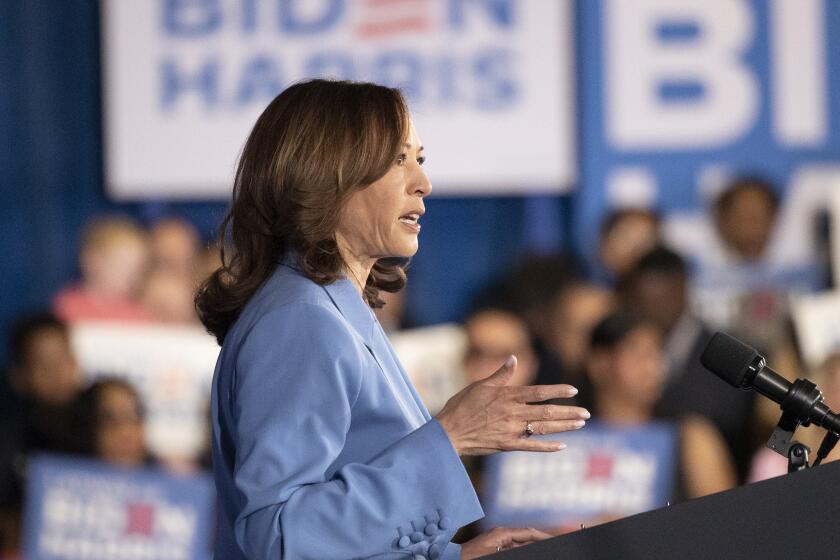Bailout divides regional banks
With the U.S. Treasury injecting $35 billion into about 20 regional banks, attention is likely to shift to rivals that may not be strong enough to qualify for such assistance.
Banks that fail to get federal money by Nov. 14, when officials plan to finish investing $250 billion in financial institutions, may find that their best option is to be taken over by a bank that receives Treasury funding.
“Come Nov. 14, the big question will be, ‘What about the banks that didn’t get any capital?’ ” said Joseph Morford, an analyst with RBC Capital Markets in San Francisco.
That could include such institutions as Downey Financial Corp. of Newport Beach, Vineyard National Bancorp of Corona and Hanmi Financial Corp. of Los Angeles, which are operating under regulatory sanctions while trying to raise capital from nongovernment sources.
Shares of those banking firms fell sharply Monday, with Downey down 7.1%, Vineyard dropping 11% and Hanmi losing 8.7%.
Executives at Downey, which got in trouble with high-risk home loans, declined to comment. Vineyard, suffering losses on loans to home builders, is in a regulatory “quiet period” while attempting to sell $250 million in new stock and bonds. Hanmi, struggling with soured construction and business loans, declined to comment to analysts last week on whether regulators’ restraints would prevent it from accessing Treasury capital.
The injections of funds mark the start of the second phase of a plan to use $250 billion of the $700-billion bailout fund authorized by Congress to encourage banks to start lending to one another again as well as to businesses and consumers. Regulators and Treasury officials have said they want to make healthy banks healthier rather than shore up weaker banks.
The first phase made $125 billion available to nine giant banks. The second phase is to provide $125 billion to smaller banks through Nov. 14.
The deals announced since Friday range from $7.7 billion for PNC Financial Services Group Inc. of Pittsburgh to $17 million for Redding Bank in Northern California. City National Bancorp of Beverly Hills received $395 million, and UCBH Holdings of San Francisco, parent of United Commercial Bank, got $298 million.
Shares of UCBH rose 3.1% on Monday, while City National edged up 0.6%. PNC rose 3.5% after its announcement Friday.
Most banks are likely to seek cash from the Treasury, analysts said. First off, the money is cheap, costing only 5% annually for the first five years. And the financial crisis has led even strong banks to increase their cushions against losses. Finally, not raising the money could make a bank look weak.
When PNC said Friday that it was accepting the $7.7-billion government investment, the company also announced it had agreed to acquire National City Corp. of Cleveland, in which the Treasury had declined to invest.
UCBH Chairman Thomas S. Wu said the Treasury funds, along with investments from China Minsheng Bank, a private bank in China, would enable UCBH to do more home lending, increase credit lines for businesses and consider acquisitions. UCBH considered it “very important” to be among the first 20 regional banks to get funds, so it applied immediately when regulators advised that its application would be approved quickly, Wu said.
Dominic Ng, chairman of Pasadena’s East West Bancorp, said East West’s board carefully considered whether to seek new capital because the bank’s net worth already was high. After weekend deliberations, East West applied for the Treasury funds Monday. It intends to use the money for affordable housing and international trade loans and, eventually, acquisitions, Ng said.
Henry Li, marketing director at Cathay Bancorp of Los Angeles, said his bank was “quite likely” to seek federal capital.
--
More to Read
Inside the business of entertainment
The Wide Shot brings you news, analysis and insights on everything from streaming wars to production — and what it all means for the future.
You may occasionally receive promotional content from the Los Angeles Times.











